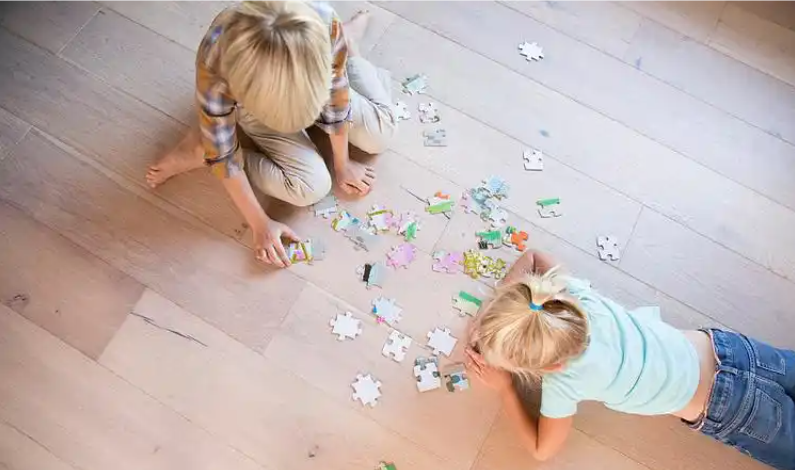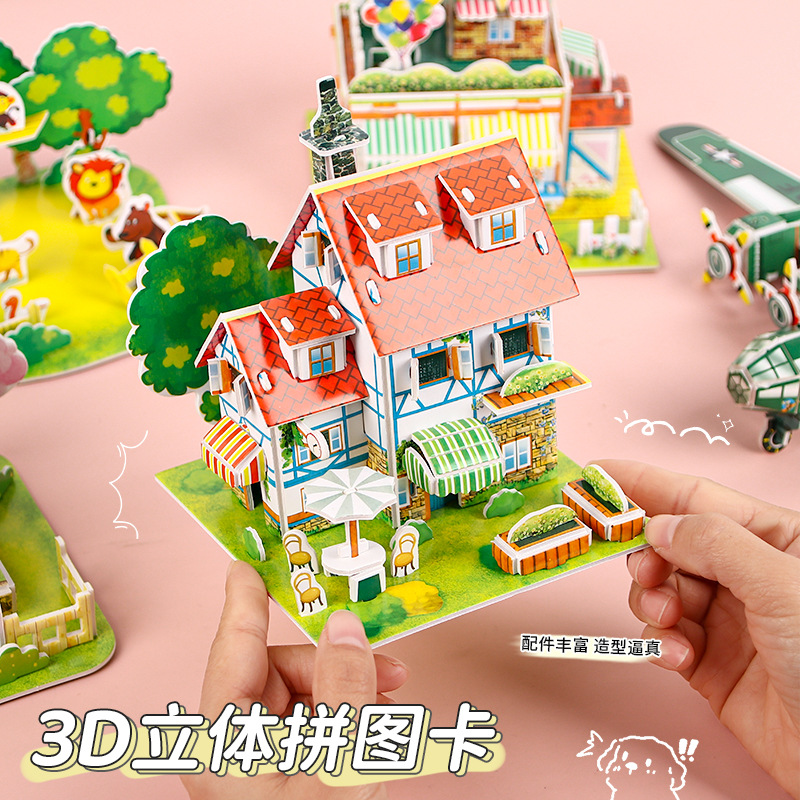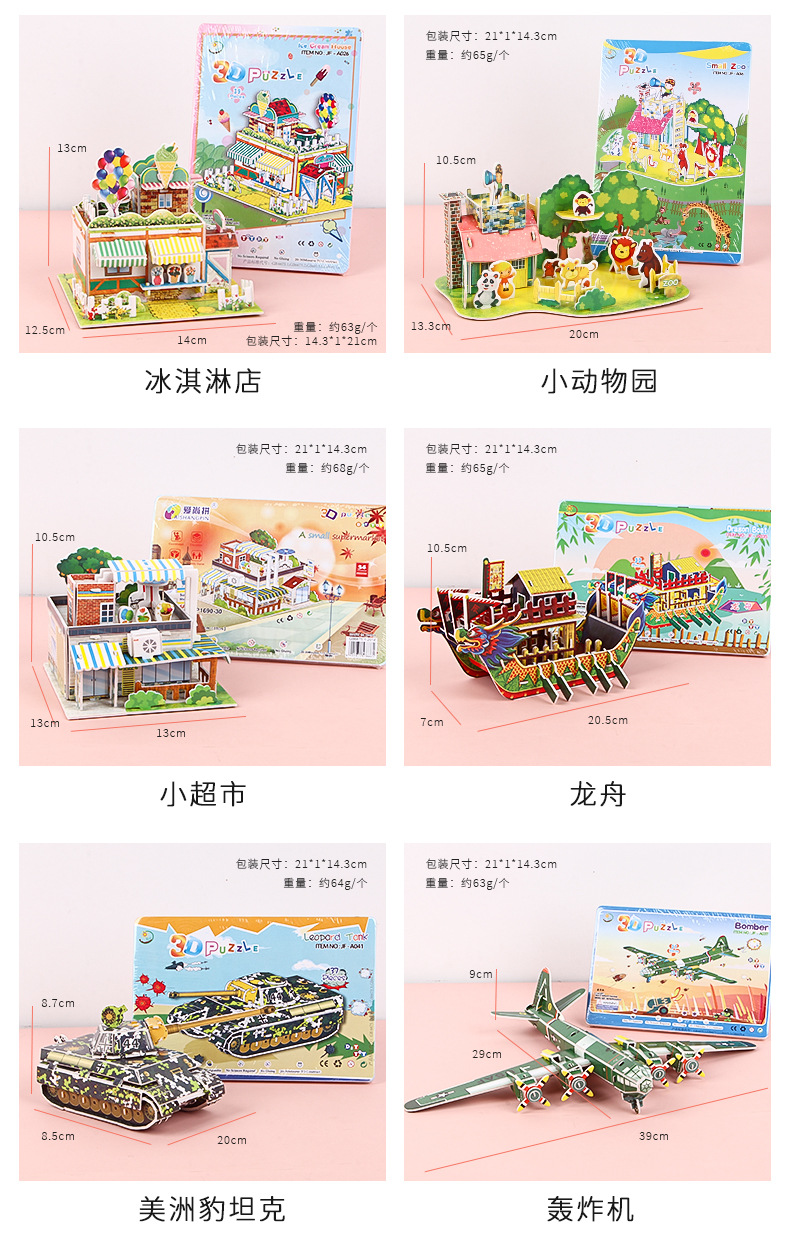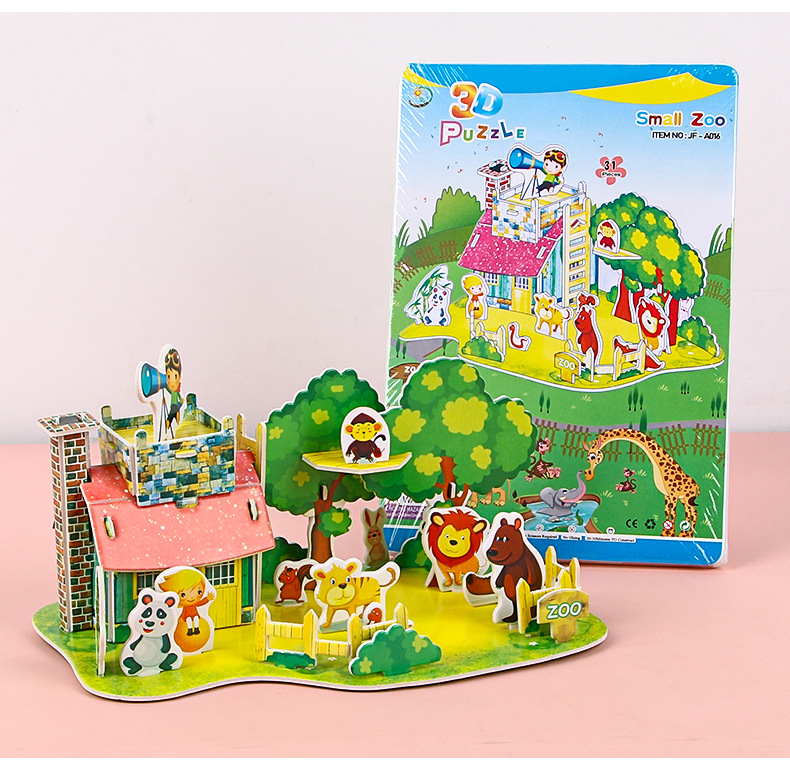The benefits of playing puzzles for children
If there’s a toy that appeals to people of all ages, can be enjoyed from childhood to adulthood, and can keep one engaged for hours on end, puzzles definitely fit the bill.
For us adults, the process of putting together hundreds or even thousands of scattered pieces isn’t just a rare moment of solitude; the sense of fulfillment and accomplishment it brings is also incredibly stress-relieving. For babies, the benefits are even more numerous, especially when it comes to enhancing their hand-eye coordination and concentration.

Around the age of one and a half, when a baby’s grasping ability has significantly improved, it’s the perfect time to introduce them to puzzles.
Enhancing Fine Motor Skills: From the moment a baby first grasps a puzzle piece, their fine motor skills are constantly being challenged.
Puzzles require continuous turning, adjusting, and finally placing and securing the pieces in their corresponding positions. This series of actions effectively exercises a baby’s fine motor skills and hand-eye coordination.
Concentration and Cognitive Abilities: Puzzles are like mini-mysteries. In the process of solving them, babies need to carefully observe the puzzle pieces first. This is an excellent way to boost their concentration.
We can also guide them by asking plenty of questions:
“What color is the little house? What shape do you think it is? Then, which puzzle piece with what shape and color can fit here?”
Such heuristic questions help babies observe independently and discover clues for fitting the pieces together, encouraging them to think about the relationships between the whole and the parts, as well as correspondences.
During this process, a baby’s concentration and cognitive abilities can be greatly enhanced. The act of assembling puzzles is a simultaneous rapid operation of their little minds and hands, helping them sit still for longer periods.
Now, some parents might say, “That sounds great in theory, but my little one can barely sit still for three minutes before getting restless. If they can’t figure it out, they’ll immediately throw a tantrum and mess up all the pieces you’ve already put together.”
At this point, it’s crucial that we remain calm and not rush them. This is actually a prime opportunity to cultivate their resilience and emotional management skills, and we need to guide them properly.
So, how do we choose and play with puzzles in a way that keeps children engaged and makes them fall in love with them?
Puzzles offer numerous benefits, but choosing the right ones and playing with them correctly are key to turning puzzles into toys that make babies smarter.


Choosing puzzles is no small matter, especially for babies under three years old. They shouldn’t be too easy or too difficult.
If they’re too easy, babies will lose interest after playing once. If they’re too difficult, babies may develop a fear of challenges and fail to experience the sense of fulfillment that puzzles bring, leading them to give up halfway.


Toddler Girl Boy Inflatable Bouncing Animal Hopper exercise Birthday Gift Toy
Montessori Toys Wooden Learning Puzzles Shape Sorter Toy for Toddlers 1-3
Dinosaur Color Sorting Sensory Toy Gift for Toddler Matching Game Roadtrip Travel Essential
LCD Writing Tablet for Kids 8.5 12 Inch Colorful Doodle Board Drawing Table Gifts for Boys Girls